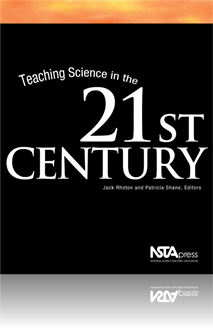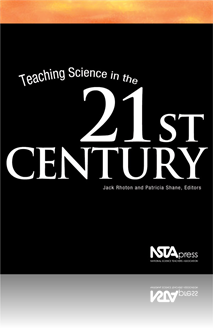All Resources
Book Chapter
Leadership in Science Education for the 21st Century
In the early decades of the 21st century, science educators face some problems unique to the times and some common to all eras. Some of the issues wil...
Book Chapter
The Principal as Leader of Change
As long as the job of principal remains as complex and undoable as it is currently, and as long as either teaching faculties or local school boards pr...
Book Chapter
Keeping Good Science Teachers: What Science Leaders Can Do
Only when teachers have had the kind of training and experience that makes them successful with students can schools become and remain effective. Crea...
Book Chapter
Understanding Supply and Demand Among Mathematics and Science Teachers
Concern over school staffing problems has given impetus to empirical research on teacher shortages and turnover. As a result, the National Center for ...
Book Chapter
The Importance of Partnerships in Science Education Reform
In this chapter, the authors make the case for the importance of partnerships for science education reform. Building and nurturing appropriate partner...
Book Chapter
Developing Professional Learning Communities
Adlai E. Stevenson High School (AESHS) is a suburban school in Illinois that has been consistently cited in educational literature as an exemplary pro...
Book Chapter
No Child Left Behind: Implications for Science Education
The No Child Left Behind Act of 2001 (NCLB 2002) acknowledges and supports the need for partnership and collaboration among the many stakeholder group...
Book Chapter
Alternative Certification: Aspirations and Realities
Although the number of alternative programs is ever increasing, shortages in the number of qualified science teachers continue. These programs have no...
Book Chapter
Brain Research: Implications for Teaching and Learning
As knowledge of many aspects of the brain has exploded over the past few decades, there has been a strong desire to link the study of the brain, i.e.,...
Book Chapter
How Do Students Learn Science?
As we search for ways to improve classroom science experiences for students, we repeat the same question over and over: “How do students learn scien...
Book Chapter
The Science Curriculum: Trends and Issues
Among the 21st century issues and trends in science education, one must acknowledge the fundamental importance of the science curriculum. It is the on...
Book Chapter
The Psychology of Scientific Thinking: Implications for Science Teaching and Learning
Science education has two primary aims: to teach children about our accumulated knowledge of the natural world and to help them employ the methods, pr...
Book Chapter
Research in Science Education: An Interdisciplinary Perspective
The continuing goal of science education research is the generation of pedagogical knowledge that can be used to improve meaningful understanding of s...
Book Chapter
Classroom Assessment in the Service of Student Learning
Science education reform literature acknowledges the close relationship between assessment and learning. This chapter takes a closer look at this tigh...
Book Chapter
Engaging Teachers in Research on Science Learning and Teaching
Professional Development Standard C of the National Science Education Standards recommends that professional development activities for teachers "prov...



